Your Guide to Carpenter Bees
Your Guide to Carpenter Bees
Carpenter Bees 101
Hymenoptera is an order of invertebrates that encompasses bees, wasps, and even ants. Within this order is the family Apoidea which includes over 20,000 different species of bees. Carpenter bees are just one of the species and, unfortunately, they happen to be somewhat common pests throughout the United States.
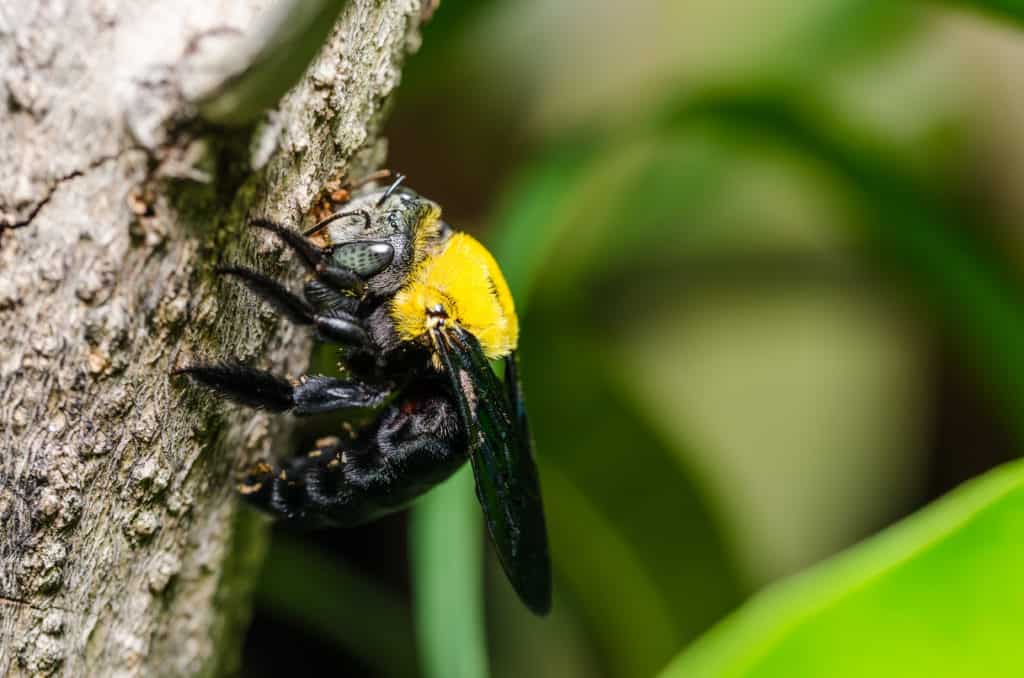
Physical Appearance
These bees are a bit heftier in size compared to honeybees and are sometimes mistaken for their cousins the bumblebees. In fact, they are the second largest native bees in the United States, just behind bumblebees. However, unlike bumblebees who have fine hairs all over their bodies, the yellow hairs that they sometime have on their thorax are somewhat patchy, while their abdomens lack any fur whatsoever, and are a shiny black color.

Nests
Unlike most Hymenoptera, carpenter bees are more solitary creatures. Mated female bees bore into wooden structures, creating a series of tunnels that act as her home and nesting area. The entry point is typically a hole spanning roughly half an inch in diameter which stretches back several inches before partitioning off into different tunnels and chambers along the wood grain. These different galleries can run from roughly six inches long to even longer than a foot.
Occasionally different bees will share an entrance into a wooden structure, but branch off to their own chambers, living separate from one another as opposed to operating as a colony.
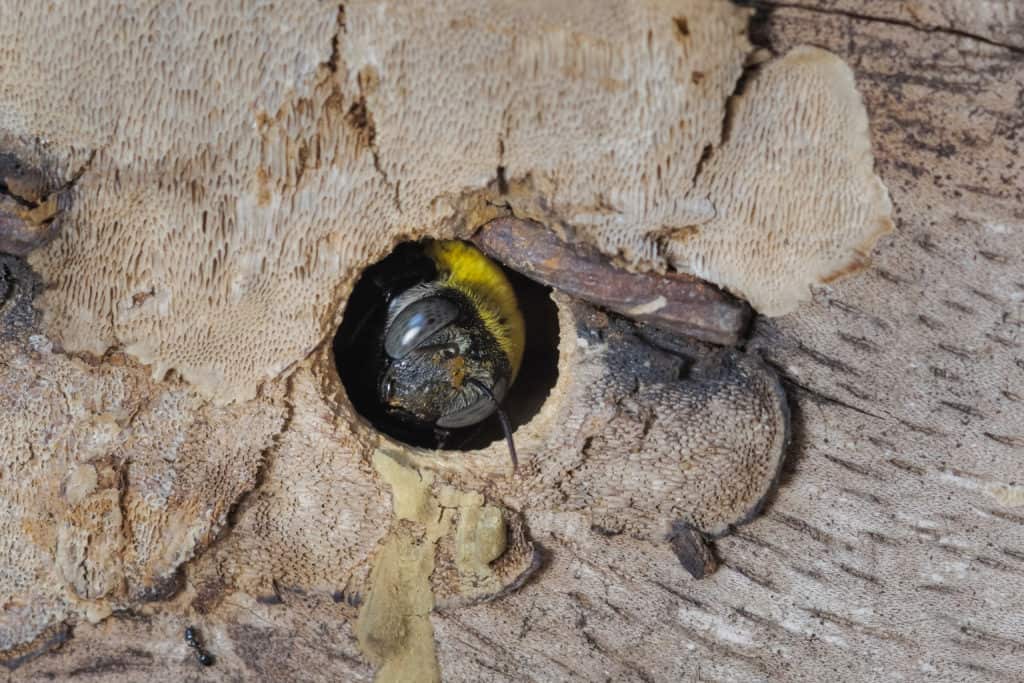
Diet
Unlike termites, carpenter bees do not consume wood. Rather, they simply chew through it and spit it out, opting to eat more appetizing flower nectar instead.
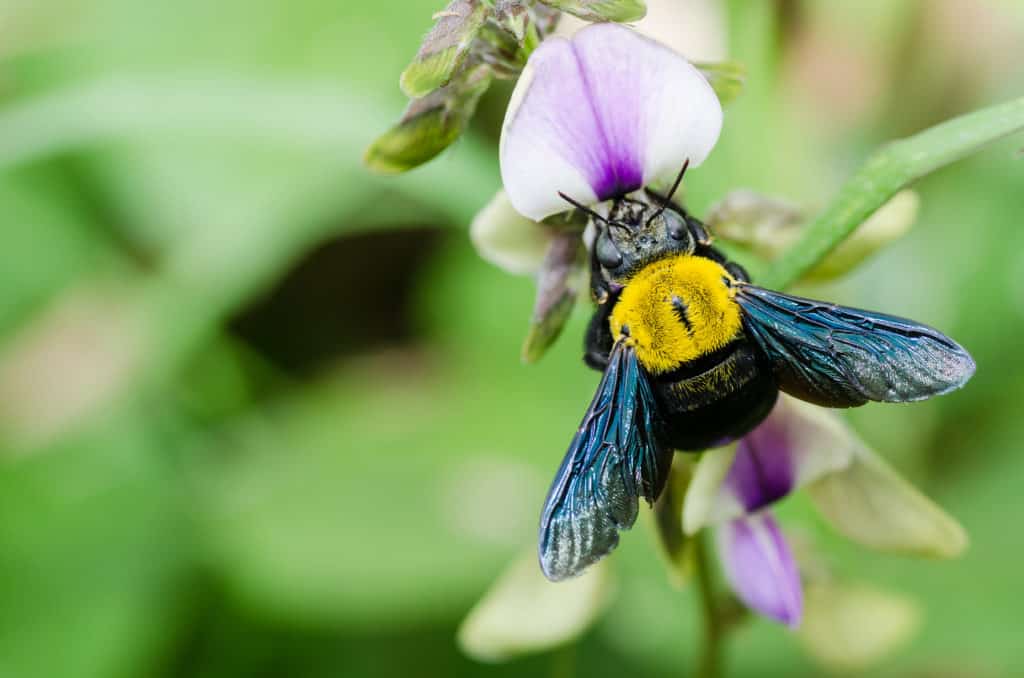
Aggression
Fortunately, these bees are not known for being aggressive. Male carpenter bees even lack the ability to sting and will simply hover nearly their nests, sometimes causing people some unnecessary worries. While the females are capable of stinging, it’s rare, and typically only occurs after extreme provocation such as being physically handled.
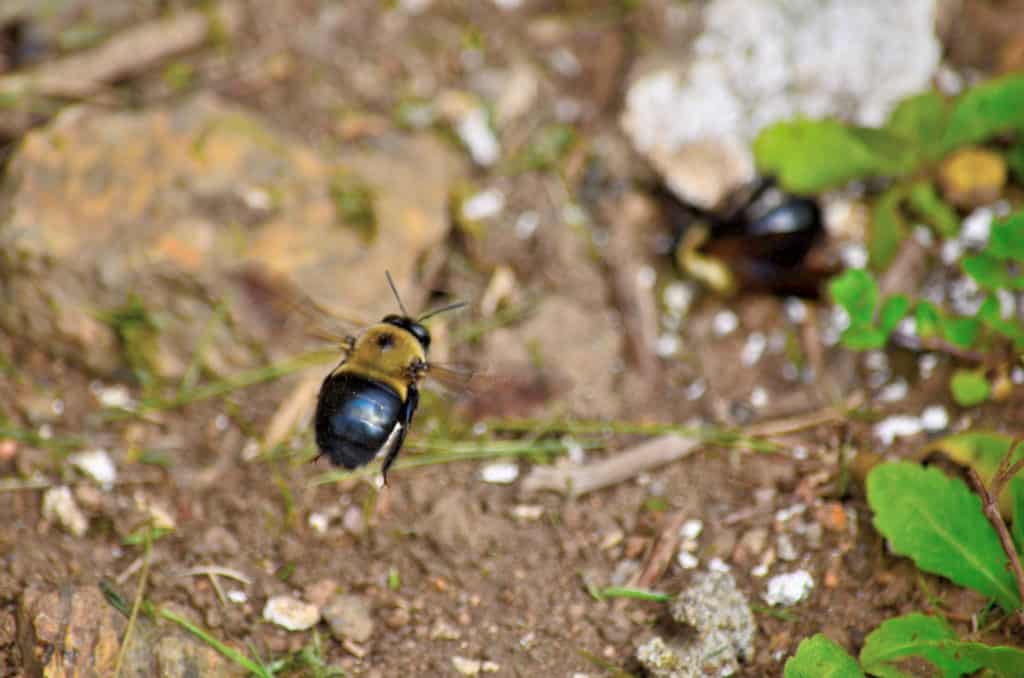
Destruction
Carpenter bees can cause significant structural damage to homes and other wooden structures through the creation of their homes. One single bee can only create so much damage, but once her offspring has hatched, the brood will spread out, causing far more damage.
Aside from the holes and deep structural damage, these bees can also leave behind unsightly stains on your wood, peeling paint, and even start causing the wood to decay.
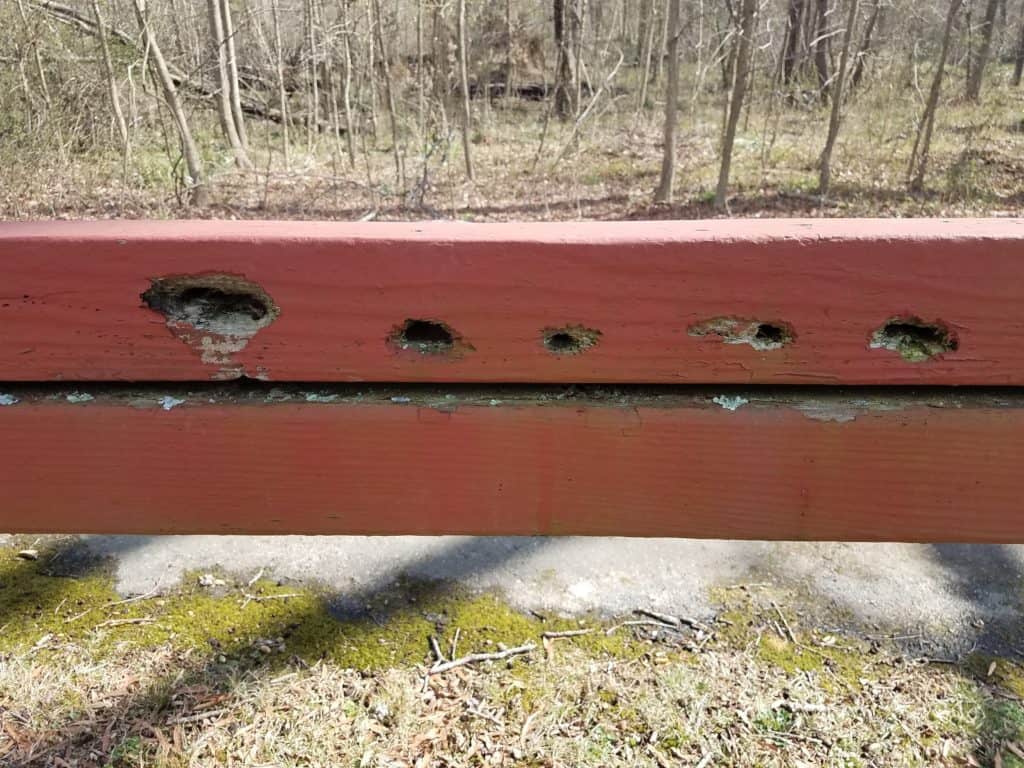
So… What can I do?
Prevention is the key to dealing with carpenter bees. Once they have begun chewing through your wooden structures, you will have a host of other problems on your hands and repairs can be extremely costly.
At Green Pest Services, we specialize in preventative treatments that keep you yard free of all kinds of pests, carpenter bees included. Contact us today to protect your home from these destructive little bees.

Citations
Buchman, S. (no date) Carpenter Bees (Xylocopa spp.), U.S. Forest Service. The United States Department of Agriculture. Available at: https://www.fs.fed.us/wildflowers/pollinators/pollinator-of-the-month/carpenter_bees.shtml (Accessed: January 26, 2021).
Carpenter Bees (2014) University of California Agriculture and Natural Resources. Integrated Pest Management Program. Available at: https://ipm.ucanr.edu/PMG/PESTNOTES/pn7417.html (Accessed: January 26, 2021).
Jacobs, S. (2017) Carpenter Bees, Penn State Extension. Pennsylvania State University College of Agricultural Sciences. Available at: https://extension.psu.edu/carpenter-bees (Accessed: January 26, 2021).
Waldvogel, M. and Alder, P. (2018) Carpenter Bees, NC State Extension Publications. North Carolina State University Department of Entomology and Plant Pathology. Available at: https://content.ces.ncsu.edu/carpenter-bees (Accessed: January 26, 2021).
Termites Are Awful Winter Pests – Here’s Why
Termites Are Awful Winter Pests – Here’s Why Termites Are Awful Winter Pests – Here’s Why Summary: Termites can remain active through winter [...]
How to Maintain a Pest-Free Kitchen for the Holidays
How to Maintain a Pest-Free Kitchen for the Holidays How to Maintain a Pest-Free Kitchen for the Holidays Summary: This blog educates homeowners [...]
Pests That Invade Packages & Boxes: How to Prevent Hidden Infestations
Pests That Invade Packages & Boxes: How to Prevent Hidden Infestations Pests That Invade Packages & Boxes: How to Prevent Hidden Infestations Summary: [...]
Keep Pests Out of Your Holiday Gatherings
Keep Pests Out of Your Holiday Gatherings Keep Pests Out of Your Holiday Gatherings Summary: The holiday season is all about good food [...]
Cold Weather vs. Warm Weather Infestations: How Temperature Shapes Pest Activity
Cold Weather vs. Warm Weather Infestations: How Temperature Shapes Pest Activity Cold Weather vs. Warm Weather Infestations: How Temperature Shapes Pest Activity Summary: [...]
Garden Pests Do Not Hibernate Indoors – How They Attack Houseplants And What To Do
Garden Pests Do Not Hibernate Indoors – How They Attack Houseplants And What To Do Garden Pests Do Not Hibernate Indoors – How They Attack [...]

